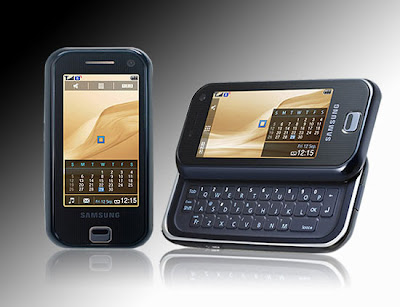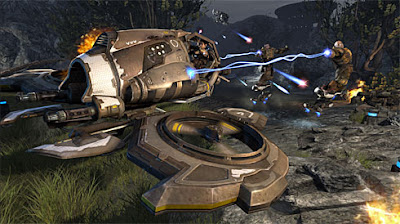What's going on inside that head of yours? That's nobody's business, of course -- except, perhaps, for companies planning to roll out games and gadgets with supposed "brainwave-reading" capabilities.
Among them is Sega Toys in Japan, which makes Brain Trainer, a portable electronic device with various mind-expanding exercises that retails for about $30. Last week Sega announced it will incorporate bio-signal-reading technology from San Jose-based startup NeuroSky into unspecified products.
While NeuroSky's technology is available now, don't expect to find mind-reading toys or videogames at Toys 'R' Us just yet. That's because NeuroSky's technology is aimed at manufacturers and developers, and it will take awhile before products incorporating the technology reach the market.
NeuroSky sells a systems-development kit incorporating a sensor that picks up bio-signals, which are processed into digital signals. A manufacturer can incorporate the sensor into a headset of its own design. The sensor is dry (read: no icky gels), and only one sensor is needed to pick up the signals.
Sensors like NeuroSky's pick up physiological signals, not just brainwaves, so overblown claims of "reading your thoughts" should be taken with a grain of salt. And such sensors don't necessarily work equally well on every individual, something that becomes apparent when various people try to produce commands -- say, to move a robot forward.
"I have noticed it's a little more challenging for some people than for others," says Ted Larson, a founder of OLogic, based in Los Altos Hills, California. His company, which designs robots and other products for various clients, has become a NeuroSky partner and an expert in incorporating its technology.
To demonstrate that expertise to potential clients, OLogic designed a few demo products. One is a two-wheeled robot that can be moved forward by a user standing at a distance, who wears a battery-powered headset that transmits signals wirelessly. Another is a modified Star Wars light-saber toy that can be turned on and off by someone wearing a biosensor (and a Darth Vader helmet, if so desired).
OLogic teamed up with NeuroSky because, Larson says, "Let's just face it, their stuff is cool. It seems like magic, and it's not."
Larson says he knows of only two other companies in the consumer space that offer something an organization or developer can buy today. Interactive Productline, a Swedish company, makes a two-player game called Mindball that's been displayed at Wired's Next Fest (where astronaut Buzz Aldrin played it) and shown on ABC's Live With Regis and Kelly.
Mindball can be found in museums and schools, but it isn't meant for individual consumers -- the setup is large and, arguably, the novelty wears off fast. (Each player sits at the end of a long table and competes to move a ball into a desired hole using their "thoughts.")
The company is "looking into developing consumer-oriented products," says CEO Bitte Hanell, though she declines to provide further details.
Emotiv Systems, a San Francisco startup, expects to make major announcements next year. Focusing on the videogame market, it offers partners a complete headset (as opposed to components that go into a headset, as NeuroSky does).
NeuroSky CEO Stanley Yang, noting that several big announcements are forthcoming from his company, hints at what might be done with components outside of toys and videogames. Long-distance truckers might benefit from a communications headset that plays sounds or music when drowsiness-related bio-signals are detected. Massage-chair customers might enjoy kneading that responds to pleasure-related bio-signals.
The French company Musinaut intends to use NeuroSky technology in a headset that is designed to detect a listener's mood and adjust music accordingly.
Such features will have to work extremely well to succeed. These products "need to be better than a person can do by themselves," says Eric Klopfer, a professor at MIT. "It is easy enough to change the settings on your music player or massage chair to sound or feel better."
Detecting feelings is particularly tricky: "I think it is reasonably safe to state that no current technology suitable for incorporating into a consumer product can accurately identify different feelings," says Olafur S. Palsson, an associate professor of medicine at the University of North Carolina at Chapel Hill.
More promising, perhaps, are biofeedback gauges for videogames or toys that reveal when a user is losing his cool. Visible evidence that you're cracking could alert you to calm down and refocus.
"We've done some of that kind of work with multiplayer-type things," says OLogic's Larson. "It adds a whole new challenge to be able to control your mental state while you're playing a game ... it stands to potentially cause another paradigm shift in the videogame industry."
A system that teaches players to keep their cool is nearing a decision from the United States Patent and Trademark Office. Called ZONE, for zeroing out negative effects, it uses bio-readings to physically change the dimensions of a training setup -- for instance, a modified golf putting mat.
If you're focused and calm, according the system, the hole will get bigger, and the undulations of the mat will flatten out -- so making your putt will be easier. If you're distracted, the hole will shrink and more undulations will appear.
The mental association created from using real-world sporting equipment during the training will help users recall "the zone" during competition, says Alan T. Pope, an inventor and researcher at NASA's Langley Research Center who is listed on the patent application along with Palsson and others.
Besides golf, possible appications include archery, sharpshooting, foul shooting in basketball, tennis serving and darts. Pope envisions the system eventually being deployed for regular consumer use but says commercial partners have not yet been lined up.
Source: http://www.wired.com/techbiz/startups/news/2007/12/mind_games?currentPage=2
http://www.wired.com/techbiz/startups/news/2007/12/mind_games








